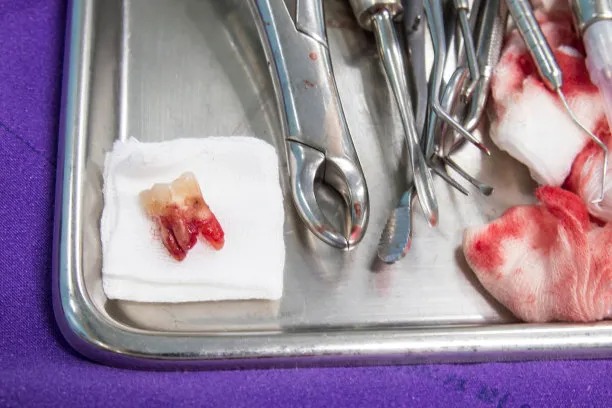Summary: Dental implantation is a critical procedure for restoring oral function and aesthetics, and preparing adequately can significantly enhance outcomes. This article outlines essential guidelines and precautions one should consider before undergoing dental implantation. Key areas of focus include understanding the procedure, assessing candidacy, choosing a skilled dental professional, and preparing for recovery. By following these guidelines, patients can ensure optimal oral health and a smoother recovery process, ultimately leading to more successful dental implants.
1. Understanding the Dental Implant Procedure

The first step in preparing for dental implantation is to gain a thorough understanding of what the procedure entails. Dental implants involve placing a titanium post into the jawbone, which acts as a root for a replacement tooth. Patients must recognize that this is a surgical procedure that requires proper planning and a skilled dental team.
In addition to the surgical placement, understanding the subsequent steps is crucial. After the implant is placed, it takes time for the bone to integrate with the titanium post—a process known as osseointegration. This phase is vital for the stability of the implant, and patients must be prepared for multiple visits to their dentist throughout the healing period.
It is important to discuss any concerns or misconceptions with your dental professional prior to surgery. Accurate knowledge of the process and its associated risks will help mitigate anxiety and improve overall comfort, making for a better patient experience.
2. Assessing Your Candidacy for Implants
Before undergoing dental implantation, patients must be evaluated for their candidacy. Factors such as age, overall health, and dental hygiene play a significant role in determining eligibility. Generally, adults who have completed their jaw growth are preferred candidates for implants.
Additionally, patients with certain medical conditions, such as uncontrolled diabetes, autoimmune diseases, or those who smoke, may face challenges during the recovery process. Its essential to discuss these conditions with your dentist, who can provide personalized guidance on your suitability for the procedure.
Furthermore, adequate bone density is crucial for the success of dental implants. If a patient lacks sufficient bone, procedures such as bone grafting may be needed. Being aware of these factors allows patients to take proactive steps for better outcomes.
3. Choosing a Skilled Dental Professional
The expertise and experience of the dental professional performing the implant procedure cannot be overstated. Researching potential dentists or oral surgeons is an important step for prospective patients. Look for credentials, years of experience, and patient reviews to gauge the quality of care.
Moreover, a consultation appointment can provide vital insight into the dental professionals approach and communication style. Discussing your treatment plan and expressing concerns can help build trust and ensure a comfortable rapport, vital for a successful surgical experience.
Remember, not all dental professionals are equally skilled in performing implants. Choosing someone who specializes in dental implants can greatly enhance the likelihood of successful outcomes and minimize complications.
4. Preparing for Recovery Post-Implantation
Preparing for post-operative recovery is crucial for a successful dental implant process. Patients should have a clear understanding of the recovery timeline, which typically requires several weeks. It’s essential to plan for this period, arranging for assistance with daily tasks and scheduling follow-up appointments.
Additionally, proper aftercare management, including following prescribed medications and adhering to recommended oral hygiene practices, can significantly impact healing and implant success. Patients should also be cautious about diet, opting for softer foods and avoiding pressure on the implant site during the initial healing phase.
Lastly, patients should remain vigilant for signs of complications, such as excessive swelling or pain, and report any concerns to their dental professional immediately. Prompt attention to these issues can prevent more severe complications and lead to better recovery outcomes.
Summary:
In summary, a thorough understanding of dental implantation, assessing candidacy, selecting the right dental professional, and preparing for recovery are critical components for achieving optimal oral health post-surgery. Patients who take these precautions can enhance their chances of a smooth procedure and successful implant integration.
This article is compiled by Vickong Dental and the content is for reference only.
Vickong Dental
Vickong Dental is a large medical group established in Hong Kong in 2008 by professors from well-known medical universities in Guangdong and Hong Kong, as well as medical doctors from key national '985' universities (including Master's supervisors and senior professors). The chain of branches brings together expert dentists with PhDs and Master's degrees from Hong Kong and Mainland China, committed to providing high-quality dental treatment.
"Vickong Dental Practices the University Motto of 'Healing and Serving Society,' with a Stable Operation for Sixteen Years. It Has Been honored with Hong Kong Enterprise Leaders's Choice,' and is a Global Trusted Implant Center for the Nobel Implant System. Recommended by Hong Kong Metro Broadcast and Guangdong Television, it Serves Customers from Over Thirty Countries and Regions, Gaining the Trust and Favor of Citizens from the Guangdong-Hong Kong-Macau Greater Bay Area and Surrounding Cities.

Thousands of customers' unanimous praise
The most recognized and highly recommended dental service by customers in the Guangdong-Hong Kong-Macau Greater Bay Area
We Ensure You Receive Detailed Care and Attention Here
Hong Kong standards, Shenzhen prices, Your Trusted English-speaking dentists

Vickong Dental Medical-Grade Instrument Disinfection Process
Vickong Dental Medical-Grade Instrument Disinfection Process

Vickong Dental Chain: A Warm and Comfortable Environment for Treatment






Appointment Hours

Q&A
Why choose Vickong Dental?
Vickong Dental practices the university motto 「Medicine to Benefit Society」, with each branch bringing together highly qualified dentists with doctoral and master’s degrees from Hong Kong and the Mainland, and has maintained seventeen years of steady operation。Recipient of 「2024 Hong Kong Enterprise Leaders Brand」, 「2025 Hong Kong Enterprise Leaders Brand」, a Nobel Biocare Global Trusted Implant Center, and a brand recommended by Metro Radio Hong Kong and Guangdong TV。
To date, we have served customers from more than thirty countries and regions,earning exceptionally high word-of-mouth recognition and trusted recommendations from residents across the Guangdong-Hong Kong-Macao Greater Bay Area and surrounding cities
We have eight major branches in Zhuhai、Shenzhen,and a consultation and service assurance center in Hong Kong,so you can book a free consultation at any time for any questions,which is very reassuring.
If I do not accept the quotation after the CT scan, will I be charged??
No! As long as the actual treatment has not started, you will not be charged any fees.
Will there be any additional charges during the treatment process?
No, there won’t be any additional charges. Before treatment begins, we will clearly explain the treatment plan and its corresponding fees. Only after the patient agrees and signs the consent form will we proceed with the dental service.
Can I pay in Hong Kong dollars?
Yes. Vickong Dental accepts payment in Hong Kong dollars. The amount will be converted based on the exchange rate of the day, and the applicable rate will be clearly communicated to you in advance.
Can I reschedule my appointment at any time?
Yes. Please contact us via **WeChat** or **WhatsApp** as early as possible, providing your original appointment time and details, along with your preferred new date and time slot for rescheduling.













